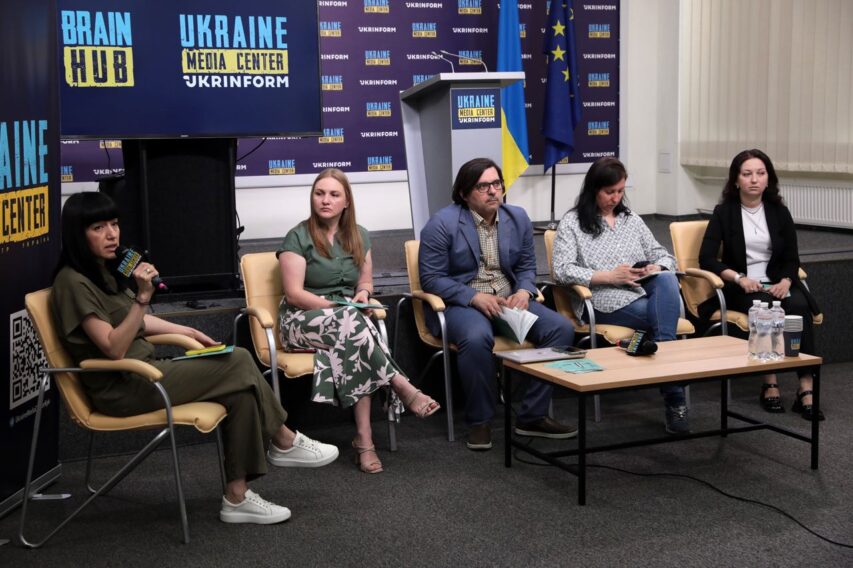
Progress of Ukraine war crimes trials – what are the interim conclusions of human rights defenders
During 2022 and early 2023, monitors of the Media Initiative for Human Rights (MIHR) monitored and brought to journalists notice more than 90 war crimes cases. They attended court hearings in 20 of these cases, including being present in the courtrooms, recording evidence, positions of the parties and judges’ decisions.
Thus, the interim findings of the human rights activists’ monitoring of the trials on the events of the war were presented within the BrainHub country’s main discussion platform.
In particular, the analytical document describes and analyzes the complicated access to trials, highlights the problems of court overload and formal consideration of cases, and describes the complexity of the trials in absentia (ed. – hearing a civil case in court without the defendant or a criminal case in the absence of the defendant being physically present) and the execution of sentences.
During the presentation, Olha Reshetylova, Co-Ordinator at the Media Initiative for Human Rights, pointed out the main challenges both Ukrainian and foreign journalists have faced.
“We have faced difficulties in attending many of the hearings because martial law allows the head of the court to restrict access to the court at his discretion. Therefore creating huge problems. For example, we went to the Kotelevsky district court of the Poltava region with French journalists. And, unfortunately, we could not attend any of the five hearings due to the court itself deciding to deny journalists access,” she said.
Heavy workload is one of the observations about the work of the courts that Olha Reshetylova pointed out.
“We see a huge number of crimes against national security, collaboration, treason, encroachment on territorial integrity, and among these cases, cases of international crimes committed in the context of Russia’s armed aggression are lost,” she added.
At the same time, Olha Reshetylova emphasized that there is a speedy judicial consideration of cases when, according to her, a verdict is passed in just two sessions.
“Sometimes courts can be seen rushing to make decisions. Perhaps it happens under public pressure, probably due to the fact that judicial decisions are processed quickly and bearing in mind that the court organization should not result in a long trial. We can’t judge everyone here, but we have recorded that we see such quick reviews in these cases,” she added.
Particular attention should be paid to the consideration of trials in absentia, in particular to the participation of the parties, the MIHR coordinator emphasized.
“It’s about the participation of the parties in these cases, especially lawyers. In the vast majority of cases, lawyers are appointed from the free legal aid center. We observe their attitude in courts to these processes sometimes to be very formal. And occasionally, they even allow themselves to behave unprofessionally,” noted Olha Reshetylova.
In his turn, Andrii Yakovliev, Lawyer and Expert at the Media Initiative for Human Rights, emphasized the importance of proportionality adhering to the open court principles
“Can a judge restrict public access to trials? It can be the case under certain circumstances when there is a statement from the victims or the accused. However, such decisions should always be ‘proportional’. When it comes to closing certain proceedings, it has nothing to do with closing the courtroom to the public and press regarding the legal case as a whole,” he said, adding that when the case is open to the public, when journalists are filming, even if there are critical judgments, it will be possible to refer to the video materials and make sure that the process is fair.
BrainHub is the country’s main discussion platform created by the Media Center Ukraine – Ukrinform. It brings together experts from the state and civil society sectors. BrainHub hosts intellectual discussions around the issues of the post-war reconstruction of Ukraine. It’s the birthplace of the best ideas that will become the foundation for the road map of Ukraine’s reconstruction in all sectors: economy, infrastructure, education, agriculture, security, digital, etc.
Read more: https://mediacenter.org.ua/news
 Back
Back 